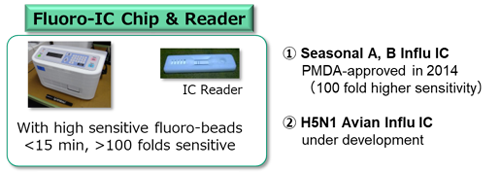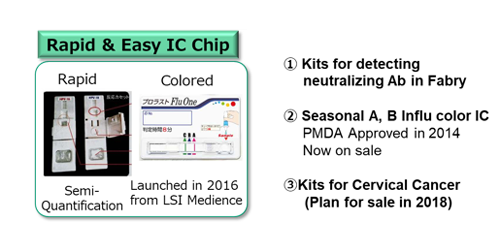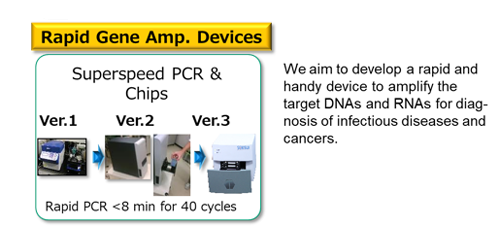
HOME > Project > Molecular Medical Research Project
Identification of Molecular Targets of Cancers and Infectious Diseases − Medical Applications
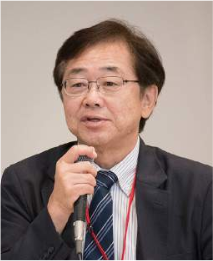
Leader Futoshi Shibasaki
Molecular Medical Research Project
Brochure 2018_PDF ![]() (860.4KB)
(860.4KB)
Brief summary of research
Translational Research for Cancer and Infectious Diseases: Basic to Applied Science
Recent discoveries of biomarkers and novel technologies have opened the new aspects of the mechanisms and drug developments especially in cancer and infectious diseases. In basic research, we have been focusing on the mechanisms of cancer angiogenesis and the drug development using siRNA, and on malignant transformation and metastasis caused by cell fusion. In addition, the novel mechanisms for H5 influenza virus entrance into cell surface would be a drug target.
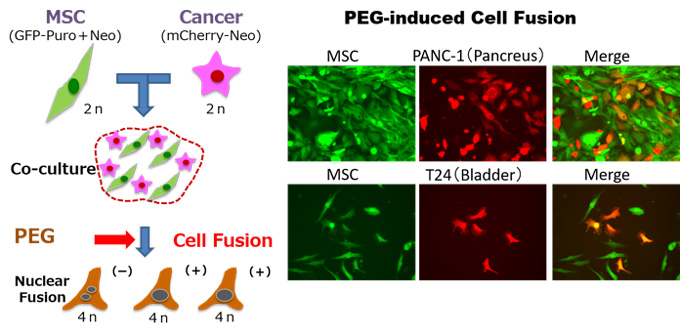
In clinical and translational research, we focus on the establishment of platform to perform “Precision Medicine” by Whole genome analysis with next generation sequence in collaboration with Metropolitan Hospitals. For Private Public Partnership (3P), we have already established the Bio-Consortium “Tokyo Biomarker Innovation Research Association” (TOBIRA).
Our specific aims are to perform the basic science and be to develop the new findings to the translational research.
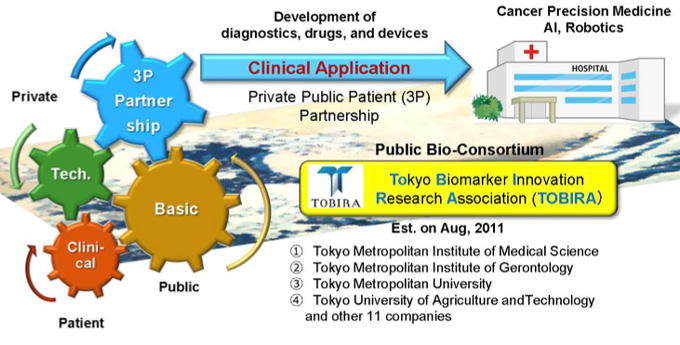
Malignant cancer progression after cell fusion with stem cells

Y. TAJIMA
Cancer cells fused with mesenchymal stem cell (MSC) in the micro- environment, changes the original character, and often promote dormant, malignant, or metastatic tendency.
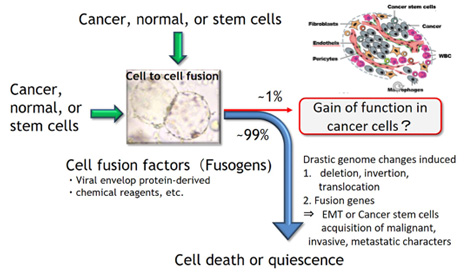
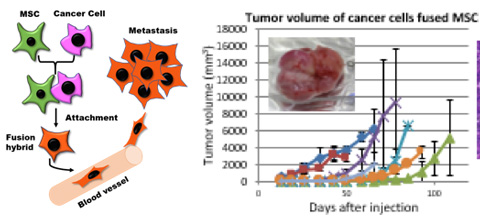
Fused cancer/MSCs promote metastasis than originals
Development of drugs for highly pathogenic H5N1 influenza viruses

N. KAJIWARA
We focus on the mechanism of basic amino acid sequence of the split region for discovering new model of the virus entry. The goal of our research is to provide new insights into the molecular mechanism of highly pathogenic avian influenza (H5N1) infection as well as the development of novel antiviral drugs.
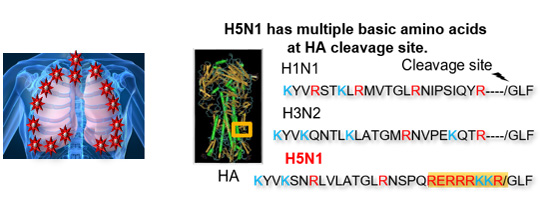
H5N1 highly pathogenic avian influenza virus causes severe pneumonia and multiple organ failure. The mortality rate is about 60%.
Drug development of Int6-siRNA

A. IRIE

S. GOTO
Int6 is a key factor to negatively regulate HIF2α-induced angiogenesis and cell protection. The specific siRNA against int6 would be a possible candidate for cell therapy to treat emic diseases of heart, brain, lower limb, and degenerative and atrophic diseases.

Diagnostics and device development through Private Public Patient Partnership
